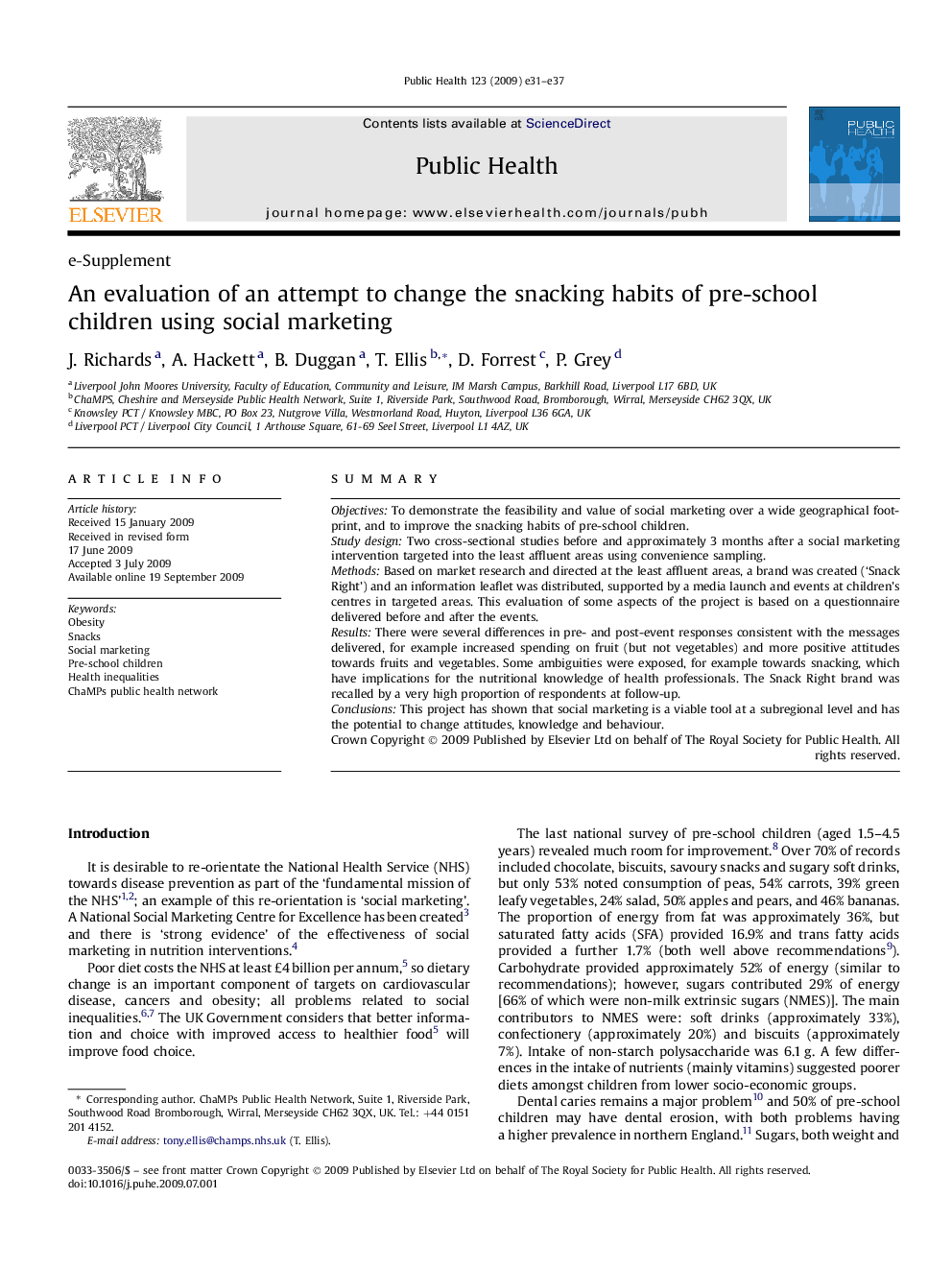| Article ID | Journal | Published Year | Pages | File Type |
|---|---|---|---|---|
| 1088227 | Public Health | 2009 | 7 Pages |
SummaryObjectivesTo demonstrate the feasibility and value of social marketing over a wide geographical footprint, and to improve the snacking habits of pre-school children.Study designTwo cross-sectional studies before and approximately 3 months after a social marketing intervention targeted into the least affluent areas using convenience sampling.MethodsBased on market research and directed at the least affluent areas, a brand was created (‘Snack Right’) and an information leaflet was distributed, supported by a media launch and events at children's centres in targeted areas. This evaluation of some aspects of the project is based on a questionnaire delivered before and after the events.ResultsThere were several differences in pre- and post-event responses consistent with the messages delivered, for example increased spending on fruit (but not vegetables) and more positive attitudes towards fruits and vegetables. Some ambiguities were exposed, for example towards snacking, which have implications for the nutritional knowledge of health professionals. The Snack Right brand was recalled by a very high proportion of respondents at follow-up.ConclusionsThis project has shown that social marketing is a viable tool at a subregional level and has the potential to change attitudes, knowledge and behaviour.
